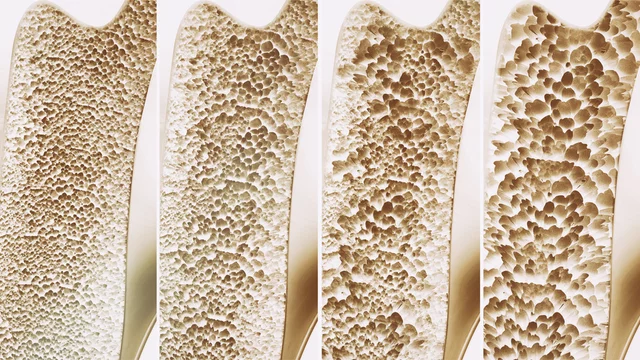When it comes to looking after our bones, there's no shortage of advice — some of it helpful, some of it not so much. With bone health being crucial for overall wellbeing, especially as we age, it’s important to separate fact from fiction. Let’s take a closer look at 10 of the most common myths about bone health and set the record straight.
Only Older People Need to Worry About Bone Health
Reality: Bone health starts in childhood. In fact, we build the majority of our bone mass during our early years, peaking in our late 20s. Laying a strong foundation early helps prevent issues later in life.
Calcium Is All You Need for Strong Bones
Reality: Calcium is essential, but it’s only one piece of the puzzle. Your body also needs vitamin D, magnesium, vitamin K, and other nutrients to properly absorb and use calcium. A balanced diet and lifestyle are key to maintaining healthy bones.
Dairy Is the Only Good Source of Calcium
Reality: While dairy is rich in calcium, it’s not the only option. Leafy greens, almonds, tahini, tofu, and fortified plant milks are excellent alternatives — especially for those who are lactose intolerant or following a plant-based diet.
Bone Density Equals Bone Strength
Reality: Bone density is just one measure of bone health. Bone strength also includes quality, structure, and the ability to withstand stress. It’s entirely possible to have high bone density but still be at risk of fractures if bone quality is compromised.
Osteoporosis Only Affects Women
Reality: Although women are at higher risk, particularly after menopause, men can also develop osteoporosis. In fact, around one in four people with osteoporosis in Australia are men, and they often experience more severe fractures due to delayed diagnosis.
You Can’t Do Anything Once Bone Loss Starts
Reality: While some bone loss is a natural part of ageing, it’s not an irreversible process. Through a combination of strength training, dietary changes, and in some cases, supplementation or medication, bone loss can be slowed or even partially reversed.
Supplements Alone Will Keep Your Bones Healthy
Reality: Supplements can help, but they’re not a magic fix. Without exercise and a nutrient-rich diet, supplements alone won’t protect your bones. Weight-bearing and resistance exercises are especially important for bone regeneration.
If You Don’t Feel Pain, Your Bones Are Fine
Reality: Bone loss is often called a "silent disease" because it usually occurs without symptoms until a fracture happens. That’s why regular check-ups and bone density scans are so important, particularly if you have risk factors.
Breaking a Bone Is Just Bad Luck
Reality: While accidents happen, frequent or low-impact fractures can indicate underlying bone weakness. If you’ve had more than one fracture after the age of 50, it’s worth discussing bone health with your healthcare provider.
Natural Therapies Don’t Support Bone Health
Reality: On the contrary, natural approaches like herbal medicine, nutritional therapy, and lifestyle changes can complement conventional treatments. There’s growing interest in exploring natural remedies for bone health, especially for those seeking a more holistic path to wellbeing.
Understanding the truth behind these common myths is the first step toward better bone health
By adopting a balanced diet, staying active, and considering both medical and natural options, you can take proactive steps to protect your bones at any age. Remember, strong bones are the foundation of a strong life — literally!

